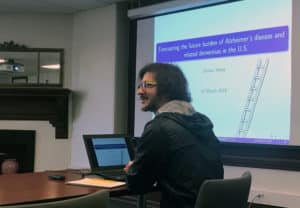By Sharnita Midgett
The number of adults 65 and older is expected to double by the year 2050, and though lifespan is increasing, healthspan — the length of time that one is in good health — is not.
Research continues to highlight exercise as important for improving markers of health, with a recent study describing why aerobic exercise may be especially important for family caregivers.
Jordan Weiss, a PhD candidate in Demography and Healthy Brain Scholar at the University of Pennsylvania, co-authored a study which examined the effects of aerobic exercise on cellular markers of aging in inactive family caregivers of loved ones with dementia.
The study recruited 68 highly stressed and physically inactive caregivers who were randomized into two groups. One group was instructed to complete aerobic exercise 3 to 5 times per week whereas the other group was asked to maintain their level of activity for a period of 6 months. In the exercise group, the researchers observed an apparent lengthening of telomeres — DNA — protein caps at the ends of chromosomes whose lengths indicate cellular aging. In addition, individuals in the exercise group had improved cardiorespiratory fitness and lower levels of perceived stress at the end of the study. This underscores the importance of physical activity for this population.

“In addition to the economic costs associated with unpaid care, caregivers face increased emotional stress, morbidity, and mortality. Our work highlights the importance of physical activity for maintaining caregiver health and well-being, but these individuals face barriers to allocating time for themselves. More policies and programs are needed to support providers of informal care.”
